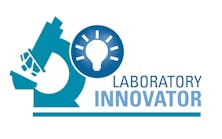A special issue of the Journal of Law, Medicine & Ethics was published online this week and edited by experts with the Center for Medical Ethics and Health Policy at Baylor College of Medicine. Its articles give policy makers the tools to start the process of establishing appropriate policies and regulatory frameworks to address potential legal and ethical challenges facing genetic sequencing technology.
Next generation sequencing technologies allow clinicians and scientists to determine the precise order of nucleotides—or building blocks—in a DNA sequence. There are a host of policy challenges facing clinical integration that must be addressed before genomic sequencing is available for routine clinical use. Reports in the special issue, authored by leading experts on a variety of subjects, are designed to provide policy makers with the most comprehensive background to address these challenges.
“There is an immediate need for critical thought about what the highest policy priorities surrounding clinical next generation sequencing are and how we may begin to address them,” the introduction says. “To develop policy priorities for clinical NGS in the absence of robust clinical data, we suggest input and deliberation from a broad array of stakeholders including NGS technology and informatics companies, clinical laboratories, healthcare professionals, insurers, regulatory and public health agencies, health economists and patient groups.” Read the articles in the special issue of theJournal.
Read more




